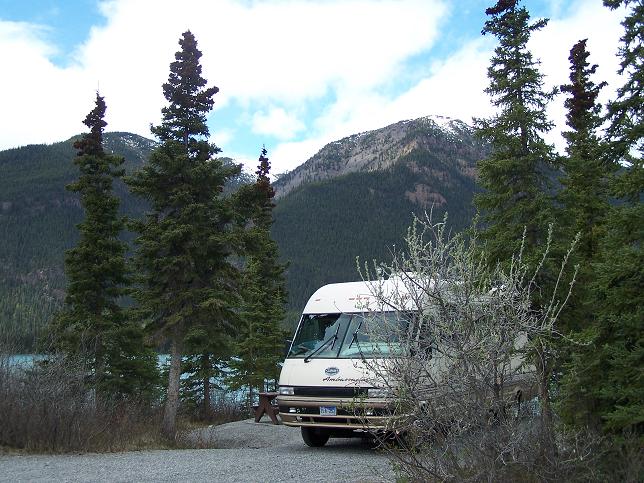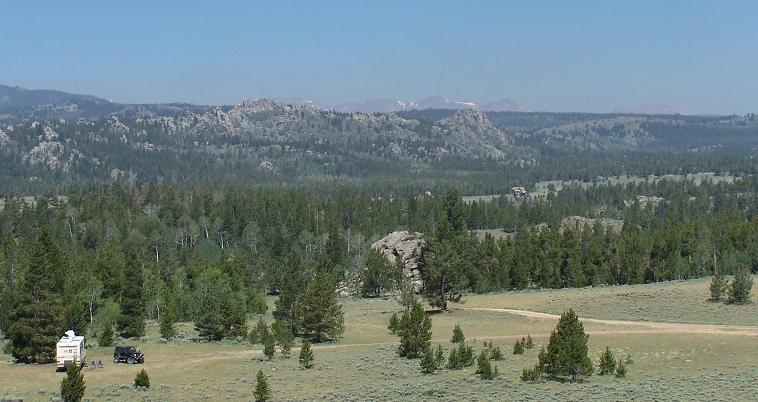Where To Go RV Camping

Find Great RV Camping Sites Like This
A friend of ours that owns an RV dealership commented that the #1 question they get from new RV owners is…”now that we own it, where can we take it?” The answer is the same and different for each state.
Keep in mind what your ideal campsite should have. Are you a nature lover that wants to get away from civilization as much as possible or are you more comfortable camping at developed campgrounds? Either way, just knowing the various places available for RV camping will make finding your perfect campsite much easier.
Public and Private Campgrounds
Private RV parks and campgrounds are easy to find providing you have the proper tools. Campground directories are the handiest way to find RV camping locations while on the road. Listed by map and by town, these books have facility reviews, prices, directions and more. Private RV parks and campgrounds offer varying levels of amenities, but usually have power, water, and dump station available.
Public campgrounds offer a much wider range of developed camping areas. From full hookup RV campsites, to primitive camping areas with no facilities at all. Learning about public lands and the camping opportunities available will help you quickly find the best campsites.
Public Camping Locations
Here is a list of public land administrators that offer camping opportunities. Rules vary about camping on public lands from state to state, so knowing who to contact for official information is helpful. www.rv-camping.org is the best source we know of for finding all state by state RV camping opportunities. You will find all the following camping location information plus tips, ideas, and more.
But wait…there are more opportunities. Many small towns offer camping at their city park, fairground, or lake. How about camping at a state wildlife management area. These lands are often only visited during hunting season, and RVers are rewarded with some of the best camping locations anywhere off season. State lands are often open to camping with or without a permit. There are county parks, community parks, state forests, state recreation areas, and more!
Finding Public Campgrounds
We think www.rv-camping.org is the best place to find public and private campground information. Thousands of hours of research has gone into locating official information about camping in every state. However, if you wish to dive in and research for the information yourself, here are a few tips.
The Internet offers a wealth of information, and public land administrators are quite good about keeping information current on their web sites. We find some sites are difficult to navigate, but by sticking to it, you usually can find the information you want. Use various search engines. Google isn’t the only search engine out there, and you may well be surprised about the different results offered by Yahoo and MSN.
Maps – There are a lot of different maps available that can help you find campgrounds and camping locations. In the western USA, we like the Benchmark Road & Recreation Atlas as it shows public lands, campgrounds, and much more. DeLorme offers great maps too, and are more popular than the Benchmark maps.
Travel Guides – These handy books are readily available at libraries, book stores, and on line at places like Amazon.com. Free travel guides are also available at every state travel and tourism office and web site. Not only will you learn about camping opportunities, you likely will find other interesting things to see and do that you hadn’t thought about.
State Information Centers – Not very helpful in our experience, but there is always some camping information available.

Chamber of Commerce – This is an under rated source of information about camping opportunities. They often know of local parks and lakes that offer camping, as well as private RV parks in the area.
RV Camping Ethics
There are a lot of people heading onto public lands for camping and other outdoor recreation activities. It’s important for all of us to remember that nobody is going around and picking up after us or our pets. We must take care of our public lands or lose the use of them. Learn about leave no trace camping principles, respect the rights of others, and always leave your campsite better than you found it.

